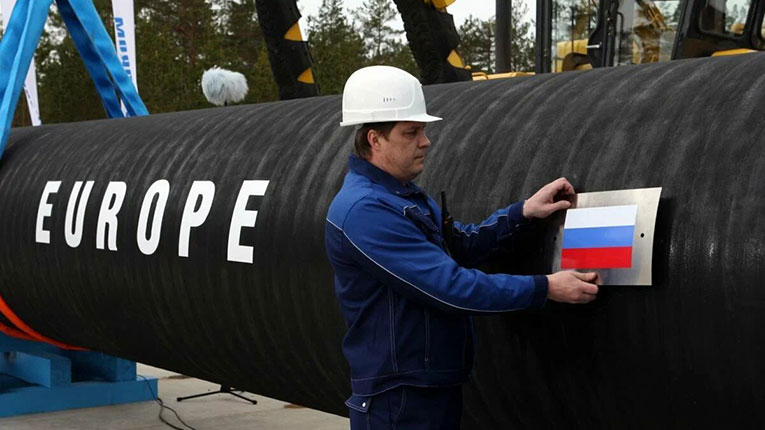In Romania, neither the government nor President Iohannis have spoken about a ban on Russian energy. However, they are nevertheless calling on the EU to end its dependence on Russian gas.
Romania has become increasingly reliant on Russia for its energy needs in recent years. In 2021, Romania relied on imports for 30% of its gas, and more than 80% came from Russia. Around two-thirds of oil refined in Romania is imported, half of which comes from Russia.
Russia’s invasion of Ukraine prompted the European Commission to unveil plans this week to become independent from all Russian fossil fuels “well before 2030” and cut its dependence on Russian gas by two thirds before the end of this year.
On the same day, the US announced it would impose an immediate ban on all imports of Russian oil and other energy imports in retaliation for mounting aggression in Ukraine.
But Europe is more dependent on Russian oil and gas, making a ban in the EU far more costly to implement for the European Union.
The staunchest supporter of all-out sanctions against Russia is Poland, even if that would hurt Europe’s economy. “Billions are flowing to Russia via Nord Stream 1,” a Polish diplomat said, referring to a gas pipeline linking Russia to Germany. “These are billions for which today Ukrainians are paying with their own blood.”
While the country would suffer from an interruption of gas supplies from Russia, they believe they are well prepared due to increased imports of US LNG and the construction of the Baltic Pipe bringing gas from Norway. In 2019, the government announced that it would halt the permanent import of Russian gas once the current contract with Gazprom expires at the end of this year.
Slovakia also came out in support of an EU ban on all Russian commodities, including oil and natural gas, Prime Minister Eduard Heger said on Thursday (10 March). “We cannot afford a restraint because it means a concession to Vladimir Putin. That is what the Russian president wants. We need to send a signal to Putin that we plan to cut ourselves off all energy from Russia,” he said.
France too said it was ready to impose energy sanctions on Russia but also appears keen to keep the dialogue open with Moscow, and Spain is another supporter of energy sanctions against Russia, although it does not make it a top political priority.
Opposed: Germany, Hungary, Bulgaria, Finland
Germany, the largest consumer of Russian oil in Europe, is adamantly against any sanctions on Russian energy. Vice-chancellor Robert Habeck warned sanctions would endanger “social peace” in the country and pose a “real danger of energy undersupply in certain sectors”.
Leading opposition figures, such as Christian Democrat politician Norbert Röttgen, have spoken out in favour of a ban.
Germany receives 55% of its gas from Russia, roughly 140 billion cubic meters (bcm) in 2021. It also imports 35% of its crude oil and 50% of its coal from Russia.
In Hungary, prime minister Viktor Orbán said he would oppose energy sanctions at the EU level. “While we condemn Russia’s armed offensive and we also condemn the war, we will not allow Hungarian families to be made to pay the price,” Orbán said on Tuesday (8 March). Hungary imports most of its oil and gas from Russia.
Last year, Hungary signed a new 15-year gas supply deal with Russia’s state-controlled energy giant Gazprom, a move that Ukraine sharply criticised at the time.
While Russia dominates Hungary’s gas supply, Budapest has also diversified its imports and has access to LNG supplies from an terminal in Croatia.
In Bulgaria, Prime Minister Kiril Petkov said his government supports sanctions on Russia but will seek an exception from a potential energy import ban, and in Finland, the government is not in favour of energy-related sanctions, which would negatively impact the country’s security of supply.
That said, most Finnish companies have announced they will exit Russia.
